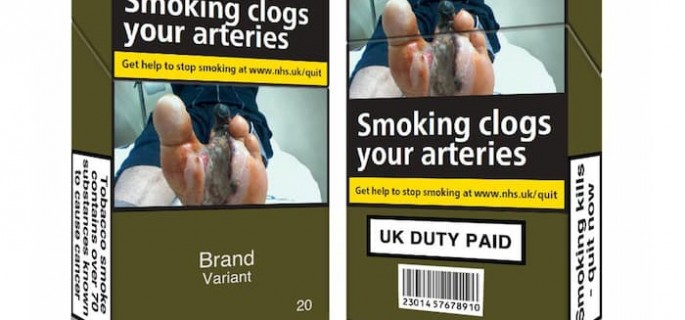High Court rejects Big Tobacco’s appeal against plain packaging

Four of the world’s largest tobacco companies have lost a high-profile legal challenge against the UK government’s new rules on plain packaging for cigarettes.
British American Tobacco, Imperial Tobacco, Philip Morris International and Japan Tobacco International launched a High Court battle last year to fight a ban on branded cigarette packaging due to come into force on Friday.
However, Mr Justice Green wholly rejected their legal challenge on Thursday, saying the new government regulations were “suitable and appropriate”.
Handing down his ruling, the judge added that the companies had no right to compensation because they engaged in activities “which impose vast cost on the state” in terms of public healthcare.
MPs voted last year to ban logos from cigarette packets after a review concluded it was “highly likely that standardised packaging would serve to reduce the rate of children taking up smoking and implausible that it would increase the consumption of tobacco”.
From Friday, all tobacco products manufactured for sale in the UK must comply with the new laws that they can only be sold in plain green-brown packaging — although there is a one-year transitional period for the sell-through of old stock.
The tobacco companies had claimed in their challenge that the regulations were not proportionate and were contrary to EU and UK law.
They said the rules would deprive them of their intellectual property and business goodwill without compensation. They argued that the “drab” new cigarette packaging would eliminate the attractiveness of their brands and that consumer brand loyalty would be diminished.
They also told the High Court in a hearing last year that the ban would be ineffective in cutting smoking rates.
Mr Justice Green rejected all the arguments put forward by the companies. He noted there was a “significant moral angle” to the new regulations, “which is about saving children from a lifetime of addiction and children and adults from premature death and related suffering and disease”.
The judge said that in the UK 600 children each day are encouraged into smoking and are future customers of the tobacco companies, placing a “vast financial burden on the state in medical and care costs”.
Deborah Arnott, chief executive of antismoking group Action on Smoking and Health, welcomed the ruling.
“This landmark judgment is a crushing defeat for the tobacco industry and fully justifies the government’s determination to go ahead with the introduction of standardised packaging,” she said. “Millions of pounds have been spent on some of the country’s most expensive lawyers in the hope of blocking the policy.”
Japan Tobacco said it planned to appeal against the decision, adding that some industries must now fear that their branding is under threat from political opportunism.
Daniel Sciamma, UK managing director of Japan Tobacco, said: “We will continue to challenge the legality of plain packaging. The fact remains that our branding has been eradicated and we maintain that this is unlawful.”
Imperial, the biggest seller by volume of cigarettes in the UK, said legal action was a “last resort” but that the companies had been “left with no option than to defend our intellectual property rights in court”.
Philip Morris argued that plain packaging had not reduced smoking levels in Australia, the only country to adopt the policy, while Japan Tobacco also said the industry should not be deprived of its brand property. BAT told the court that it was not properly consulted before the vote in parliament on the new laws.
Tobacco companies have said that since the introduction of plain packaging in Australia smoking has increased among young people and prompted smokers to buy cheaper cigarettes instead of quitting altogether.
A challenge against plain packaging in Australia failed because tobacco groups could not prove the government had benefited from their intellectual property loss. But under UK law, companies were not required to prove that the government benefited from the policy, just that property rights had been removed.
The tobacco companies used EU legislation including the Human Rights Act and the EU Charter of Fundamental Rights to help argue their case.
James Eadie QC, representing the government, told the court that the companies’ tobacco products “are the only legal consumer products in the world that cause half of their long-term users to die prematurely”.
But he added that the regulations were lawful and that standardised packaging was “highly likely to reduce both uptake and prevalence of smoking, and thus will have a positive impact on public health”.
The government argued that trademarks are being controlled, not removed altogether.
Source: FT





























